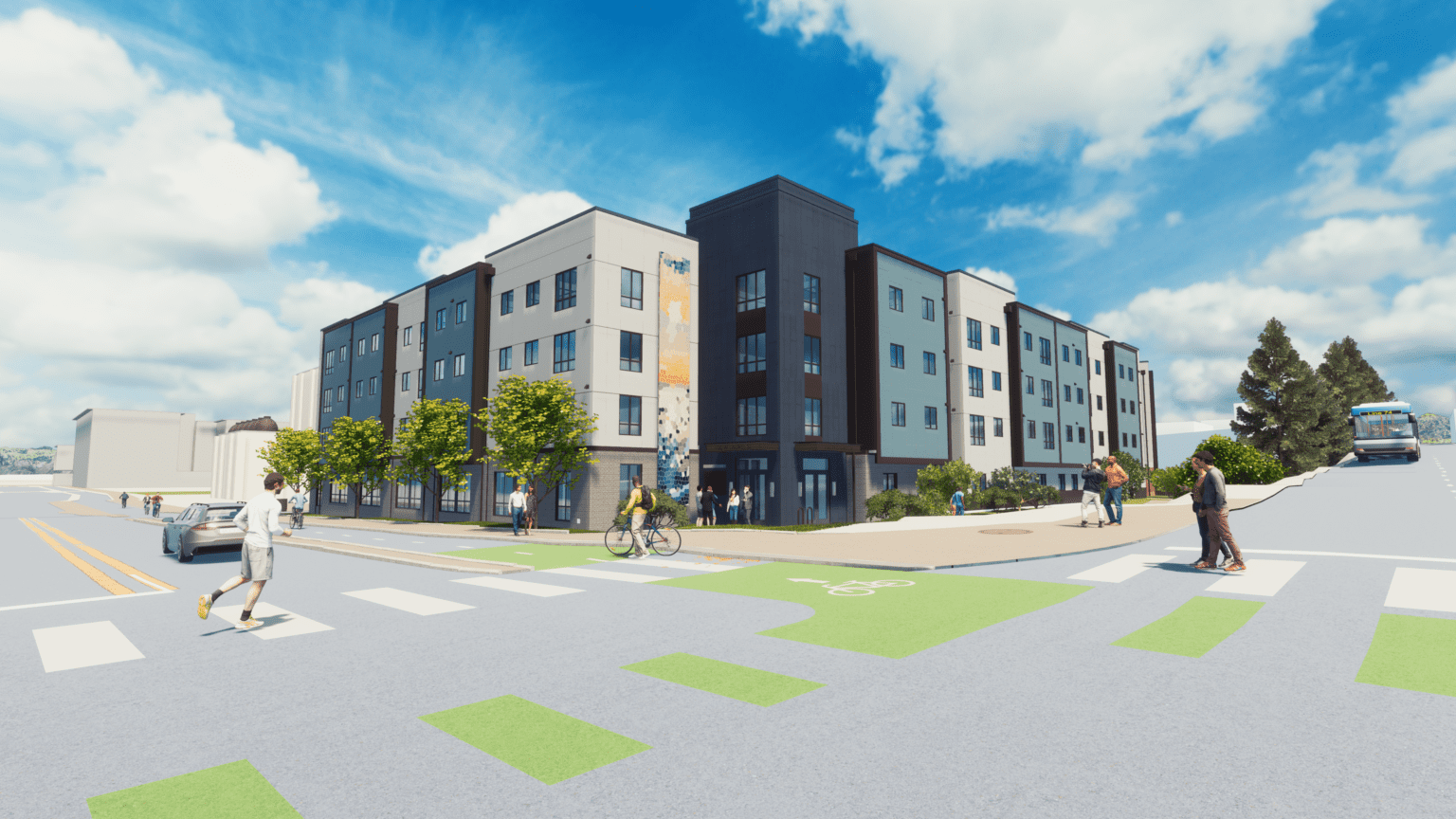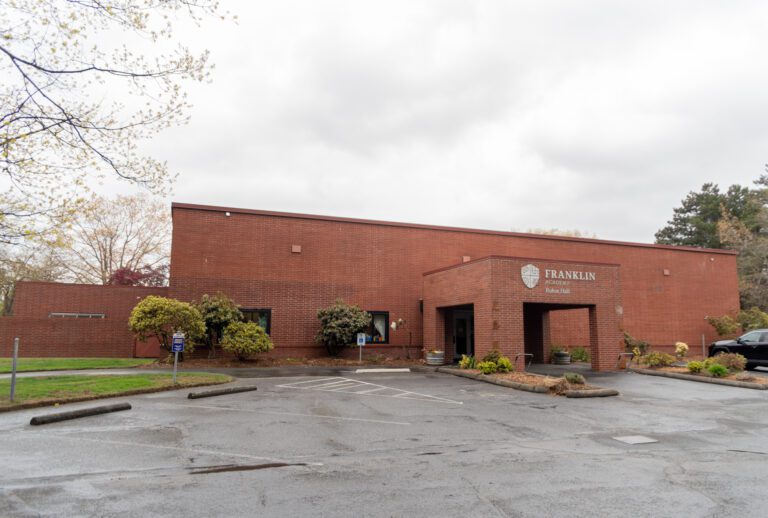Some candidates for local offices in 2023 are going big with their proposed solutions to Bellingham and Whatcom County’s housing affordability crisis.
More progressive candidates on city ballots propose “the big lift,” a new approach to tackling affordable housing that might be considered radical. Mayor Seth Fleetwood, who arguably falls on the more moderate end of the political spectrum, nonetheless touts what he calls his “radical affordability plan.”
City and county governments already spend millions of dollars annually on affordable housing, but all of the candidates appearing on the Nov. 7 ballot agree the money isn’t going nearly far enough. Given that homelessness is directly tied to a lack of affordable housing, Whatcom County’s latest annual census of homeless people indicates the problem is only getting worse.
Readers who participated in Cascadia Daily News Citizens Agenda surveys wanted us to ask the candidates: How should we create more affordable housing?
Their answers underscored the breadth and complexity of the county’s affordability problem.
Fleetwood and Lund
Fleetwood mentioned his radical affordability plan in a Sept. 6 interview with the CDN editorial board.
“Not certainly in the sense of something outrageous or new,” the mayor clarified, just “doing something different than what we’re presently doing.”
Fleetwood didn’t discuss his plan in depth, but the outline he offered could be better described as wide-ranging rather than radical. And some of it isn’t outrageous at all — it’s state mandated.
The state Legislature, Fleetwood said, “is calling on local governments … to have far more specific, detailed plans of how you’re actually going to achieve affordability for different groups, with different needs and different incomes.”
Given that 55% of Bellingham homes are rented, according to 2022 census figures, Fleetwood also looks to stabilize rents. And most of those tenants are having trouble making ends meet, according to the city’s consolidated plan for housing, completed in May. The report says 56% of Bellingham renters are cost burdened, meaning they spend more than 30% of their income on housing.
Fleetwood’s challenger, Kim Lund, agrees with her opponent but adds that the city could be doing more now to encourage home building, by speeding up the permitting process and lowering fees to developers.
But the city’s website counters this notion. “Reducing fees does not guarantee lower home prices,” a city housing FAQ says. Developers don’t always pass savings on to buyers; rather, they tend to price homes at the market rate.
Hammill and Darrow
Bellingham City Council incumbent Dan Hammill, seeking a third term, said he would push for the creation of a public development authority.
As Hammill envisions it, a public development authority would enable the city to build workforce housing directly, rather than relying solely on outside agencies such as the Bellingham Housing Authority or Mercy Housing.
Hammill defined workforce housing as serving people who make between 80% and 120% of the area median income (AMI).
“Most of the funding available from outside sources is for those who are 80% and below AMI,” Hammill said.
A public development authority could go after the $400 million added during this year’s legislative session to the Housing Trust Fund. The state plans to use that money to build 13,200 affordable homes over the next six years.
Liz Darrow, who is challenging Hammill, is among the authors of “the big lift,” an eight-page manifesto written by a small group of housing advocates that outlines a new approach to creating permanently affordable housing. Decisions on where available funds should be spent would be made by housed and unhoused individuals who have been most impacted by the community’s housing crisis.
In an interview, Darrow suggested that more of the roughly $4 million a year the city collects in property taxes for its Home Fund should be directed to rental assistance. She added that local governments had enough federal COVID-19 relief funds left over to establish two new tiny-home villages, which provide transitional housing to homeless people.
Stone and Collins
Hannah Stone, running to retain her city council seat, said Bellingham should pursue state and federal funds for housing, and densify single-family neighborhoods. She also supports inclusionary zoning — a set of rules Bellingham planners have had on their to-do list since the start of 2022, at least, but have yet to bring to the council. Inclusionary zoning requires a certain fraction of homes to be affordable in new residential developments.
Eamonn Collins, Stone’s challenger, would go even further. While inclusionary zoning might require that 10% of new homes be affordable, as in Redmond, Collins is thinking somewhere north of 50%.
“We need to be building 800 new homes a year in Bellingham. More than 425 of them need to be affordable to households earning less than $48,000,” Collins said. He supports “the big lift,” he said, but did not help write it. “We can’t wait. We need action now.”
County council
County council candidates have weighed in on housing affordability, too. Candidates who lean conservative speak of lowering costs for developers.
Hannah Ordos, running for an open countywide seat on the county council, said zoning restrictions and permitting regulations “add layers of cost to an already complicated issue.”
Ben Elenbaas, running for reelection in county council District 5, agreed.
“There is a lot of things we can do, before we spend a dime, to fix this,” Elenbaas said.
“Permitting costs are through the roof,” he added. “Not just a couple percent. Ten, 20, I’ve heard 30 percent of the cost of housing can be in permitting and mitigation” — or protecting environmentally sensitive areas. Environmental protections in Whatcom County need to be brought in line with more relaxed standards used across the country, Elenbaas said.
Elenbaas and Ordos both were endorsed by the Whatcom County Republican Party.
Jon Scanlon, the Democrat-endorsed candidate for the county council at-large seat, said the permitting process can create too much “red tape” for builders. He added that housing construction should be concentrated in cities, or in “urban growth areas” such as Marietta and Alderwood, just outside Bellingham’s city limits.
For Jackie Dexter, Elenbaas’ opponent in District 5, addressing affordable housing means meeting a wide range of social needs, from mental health and drug treatment, to providing affordable child care and preschool programs. Dexter is also interested in attracting family-wage, environmentally friendly jobs.
“Owning a home, to a lot of my colleagues and friends, is unattainable. It’s out of the question,” said Dexter, 38. “These are working families with decent jobs.”



